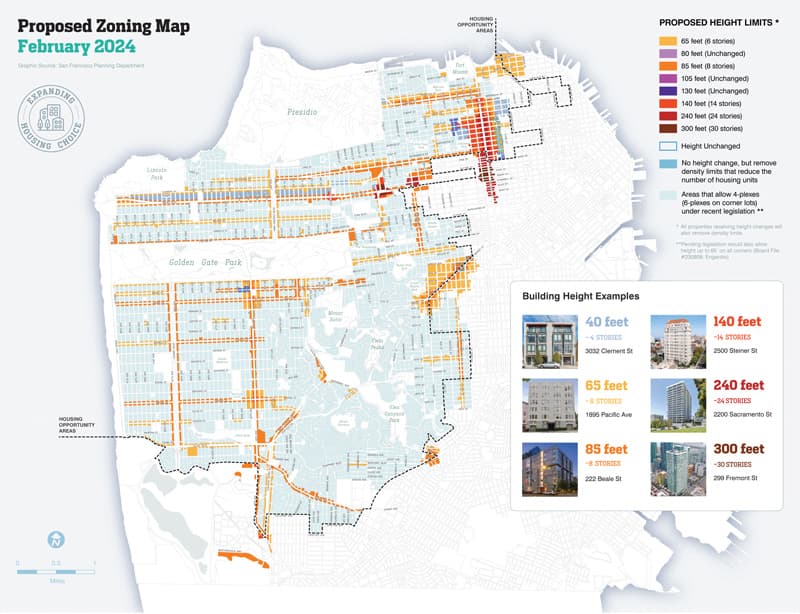San Francisco Planning Commission Advances Family Zoning Plan to Add 36,200 New Housing Units

San Francisco, CA – The San Francisco Planning Commission convened today for a critical hearing on Mayor Daniel Lurie's proposed Family Zoning Plan, a legislative package designed to significantly reform the city's outdated zoning laws and address its severe housing crisis. The Housing Action Coalition, a prominent advocacy group, confirmed their presence at the hearing, stating via tweet, "The rally may be over, but we’re not done. We’re heading inside City Hall now for the Planning Commission hearing (Room 400). Join us as we speak in support of the Family Zoning Plan!"
The comprehensive plan aims to create zoning capacity for an additional 36,200 housing units, contributing to San Francisco's state mandate to add 82,069 new residential units by 2031. Key provisions include allowing more multi-family housing such as duplexes, triplexes, and small apartment buildings in areas traditionally restricted to single-family homes. It also seeks to enable the construction of more family-sized units with two or more bedrooms and increase height and density rules in residential zones and along commercial corridors.
Mayor Lurie has championed the initiative as a means to make San Francisco more affordable for families and essential workers, many of whom have been priced out of the city. Supporters argue that the plan is crucial for retaining a diverse population, promoting equitable housing opportunities, and ensuring the city complies with state housing production requirements, thereby avoiding potential state intervention in local development decisions.
The Planning Commission's hearing marks a significant step in the plan's legislative journey, with the commission scheduled to vote on its adoption today. Following this, the proposal is expected to move to the Board of Supervisors for further consideration and potential adoption between October and November, aiming to meet the state's January 31, 2026, deadline.
While the plan has garnered strong support from housing advocates and some city officials, it has also faced scrutiny. Critics have raised concerns about its potential impact on existing neighborhoods, the actual delivery of affordable housing, and the preservation of rent-controlled units, though proponents assert the plan includes protections and mandates for affordable units. The debate underscores the complex challenges San Francisco faces in balancing growth, affordability, and neighborhood character.